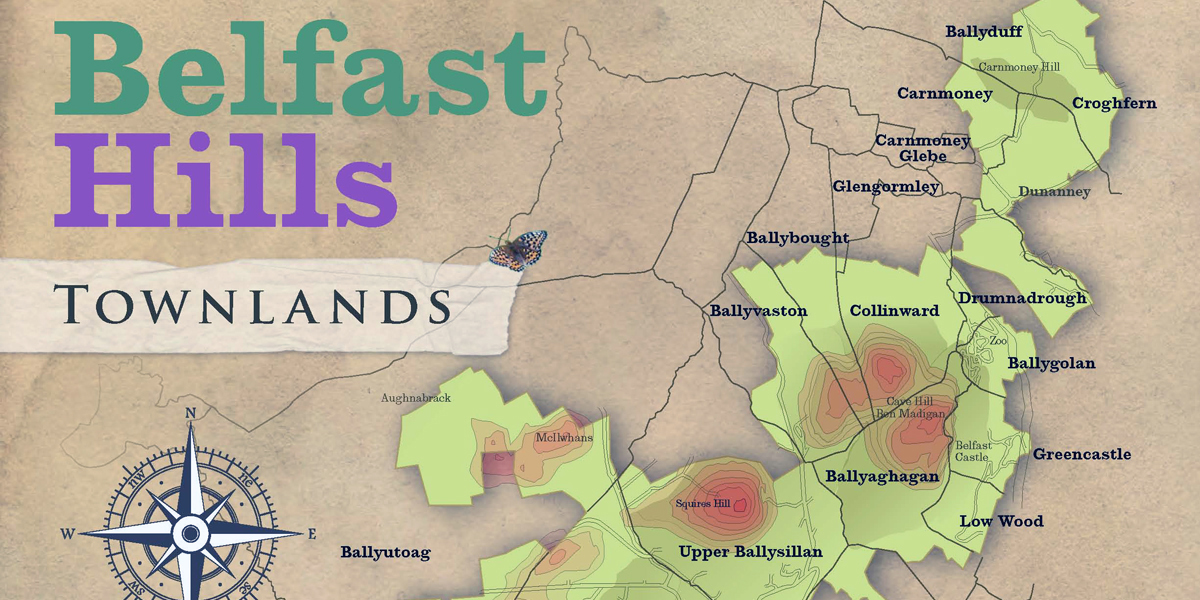A study by the Belfast Hills Partnership has revealed the ancient origins of some of our most well-known place names.
The Belfast Hills Townlands project unearths the beauty and history of the language of the hills.
The initiative, which seeks to reconnect local communities with the hills that straddle Belfast, has been spearheaded by the Belfast Hills Partnership alongside the cross-community Irish language group, ULTACH Trust. As a result a leaflet has been produced, explaining the origins of local townlands. Townlands are a unique feature of the Irish landscape – predating the Norman invasion of the 12th century and deriving their names today from the original Irish. Some take their names from physical characteristics like rocks, trees and wildlife, while others reflect the changing human influence on the landscape.
Divis Mountain in West Belfast is the Anglicised version of the Irish Dubhais meaning ‘Black Ridge’, while Ligoniel on the outskirts of north Belfast, or Lag an Aoil, means ‘the Hollow of the Limestone’.
Other names come from ancient royalty and deities, while others have marked infamous individuals, including a highwayman.
Ben Madigan/Cave Hill was where the O’Neills of northern Clandeboye were inaugurated. The townland of Ballyaghagan is named after the Ó hEachaidhín family who were hereditary bards to the O’Neills. Many became Hagan and Hawkins. Neece O’Haughian terrorised the Antrim Hills from the Braid to Colin Mountain, until he was captured and hanged at Carrickfergus in 1720.
Carnmoney is the site of the large Iron Age rath of Dunnaney Fort, or Nancy’s Fort, which probably derives from the Irish Dún Áine meaning ‘the fort of Áine’ – an ancient sun-goddess.
Some names reflect the rich Christian heritage of the hills including Shankill, which is Irish for ‘the Old Church’. It is also likely that Budore – the townland still reflected in the road of the same name running through the hills and meaning ‘Hut or Cell of Oak – refers to the site of an early Christian hermitage.
The leaflets are available in libraries or by contacting the Belfast Hills Partnership on 02890 603 466.






